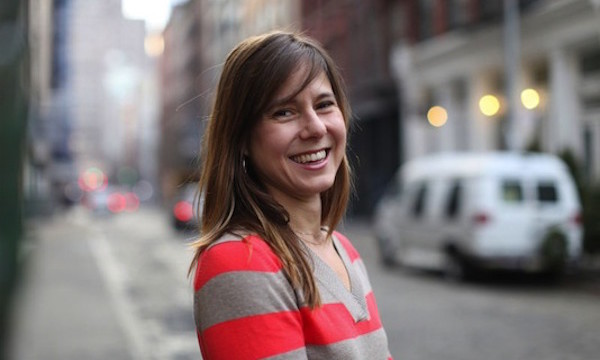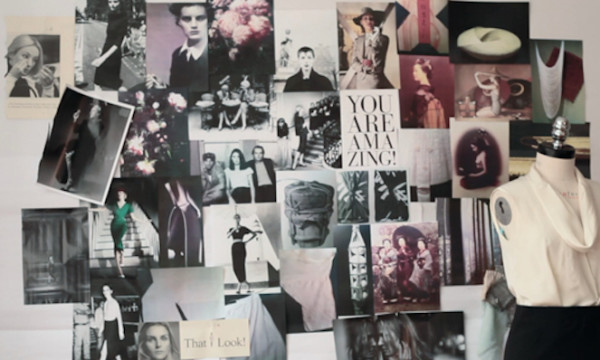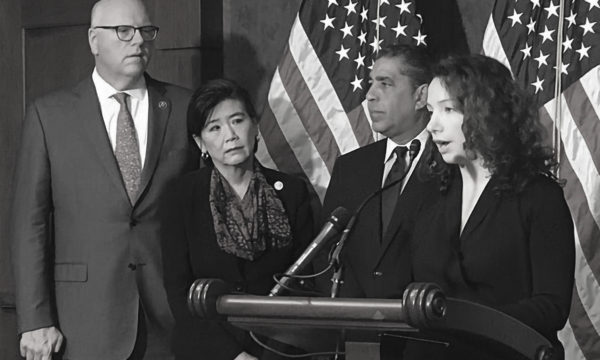Coping with Trauma at Work: A #MeToo Story
June 01, 2018 | Filed in: Humans of MM
Jacqueline joined the MM.LaFleur Finance & Strategy team after completing her graduate degree in 2017. She quickly established herself as one of the most capable professionals in our office, even earning an internal “MMVP” Award in March this year. However, as she was beginning her career here, she was also coping with one of the greatest challenges of her life: One year ago, in the final days of her graduate program, she was sexually assaulted by a classmate at a graduation party. Over the next year, she would balance starting her job and adjusting to a new city with shepherding her case through her university’s byzantine disciplinary system. Below, she shares her thoughts on accountability, processing trauma at the office, and how her work impacted her experience.
Two weeks ago was the one-year reunion of my graduate program. Two weeks ago also marks the one-year anniversary of my assault. I went back to campus for the reunion, where I felt unable to truly feel present and celebrate, just as I had felt a year ago at my graduation. Anniversaries of trauma are significant. As I look back on the past year, time isn’t linear. Days now feel like milliseconds compared to the days after my attack. I’ve tried to forget details, like the exact date that it happened, but it’s almost like your body knows more than your conscious self does.
I reported the assault five days after it occurred, in early May 2017, and it took six months for the university’s disciplinary hearing process to conclude. In fact, a week before I started at MM.LaFleur, I was back on campus, reviewing audio recordings, studying the University Student Charter and writing up what I call my ‘final grad paper’ for this case. I had hoped moving to a new city and starting my dream job would feel like a fresh start. I had hoped getting physical distance by moving would help me gain mental distance from my trauma. But trauma doesn’t work that way. For months, the pending case left a lingering shadow in my mind. I rarely thought about my attacker during the day, but saw him often in nightmares while I slept.
During all of this, I was starting a new job. Here I was trying to prove that I was a “quick learner who can hit the ground running,” as I had stated in my interview. I felt like a shell of my true self. There were weeks when I came to work and it was hard to find the motivation to excel, because nothing seemed important. I take pride in being very capable at work, and it felt like this process had robbed me of that. It was like losing a part of my own identity—my superpowers that I normally relied on weren’t there.
Then, in early 2018, I got scammed while I was looking for an apartment. The way that these two events in my life were treated couldn’t be more different. When I got scammed, people immediately could understand and empathize, even if they thought privately to themselves that it was stupid to give your money to someone you met on Craigslist. Nobody said, “You deserved to get robbed.” When I reported the theft, the scammer was arrested the next day, and within a week my money was returned by his company (it’s a long story). And yet, the D.A. is still pursuing justice on my behalf in court, even though I got my money back. Losing money is easy to understand because it’s quantifiable. My assault, however, robbed me of my sense of self, my sense of agency. You can’t put a price on that.
At MM.LaFleur, we use what we call an M3 framework to set goals. M3 stands for “missions, methods, and metrics.” Part of my job is to help people set their M3 for the year. Oftentimes, people jump ahead to listing initiatives or projects that they plan to work on without taking the time to articulate the why behind them. This was how I felt at the beginning of the disciplinary process—like there was no defined mission. Every time I had to retell the events of that night, I had to relive it. I started to wonder why I was doing this to myself.
That’s when I decided to set two major missions to ground me during this process: I wanted accountability for my attacker’s actions, and I wanted to reclaim my own voice. Once I articulated those goals, I felt like they gave me the courage and the motivation to keep going. As someone working in finance, another big focus of my job is helping people identify appropriate key performance metrics. I always emphasize that they should choose metrics they have control over. That concept helped me reframe how I would measure success during the disciplinary process: If the metric was whether or not I “won” this case, that was something out of my control. Instead, I decided my metric for success would be whether I could say at the end of it that I did everything that I could, and that was really all I could ask of myself.
Note that my goal wasn’t justice, because I don’t think there can be true justice in these situations. And I don’t know if I’ll ever get to a point where I feel like there was a satisfactory result from all this. With the #MeToo movement making harassment and assault a more public issue, I did feel that my university was really motivated to take a close look at who was qualified to be on the disciplinary panel, and what kind of education and training they had. Afterward, I also provided suggestions on how the process could be shorter and less draining for victims; and the fact that they took the time to listen to my feedback is another testament to the power of the movement.
In the immediate aftermath of an assault, it’s helpful to have an advocate who can fight for you, because as you start pursuing a case, you’re still processing the initial trauma. I had a really good friend who looked up campus resources for me to reach out to, and actually booked appointments for me, because I was in a state where even simple tasks like deciding what to order at a restaurant were overwhelming. Throughout this experience, the biggest way people have supported me is by being allies or advocates—being able to empathize, even though they may not have personal experience with sexual assault.
Being willing to call out your own peers is so important. My boyfriend, for instance, had a good friend who chose not to end his friendship with my attacker. My boyfriend then decided to end his friendship with that so-called “good friend.” And that felt extremely powerful. I would love to see more of that someday: a world where it’s not just victims who hold people accountable, but where accountability is everyone’s job.
To read our founder and CEO Sarah LaFleur’s essay on sexual harassment in the workplace, click here.








